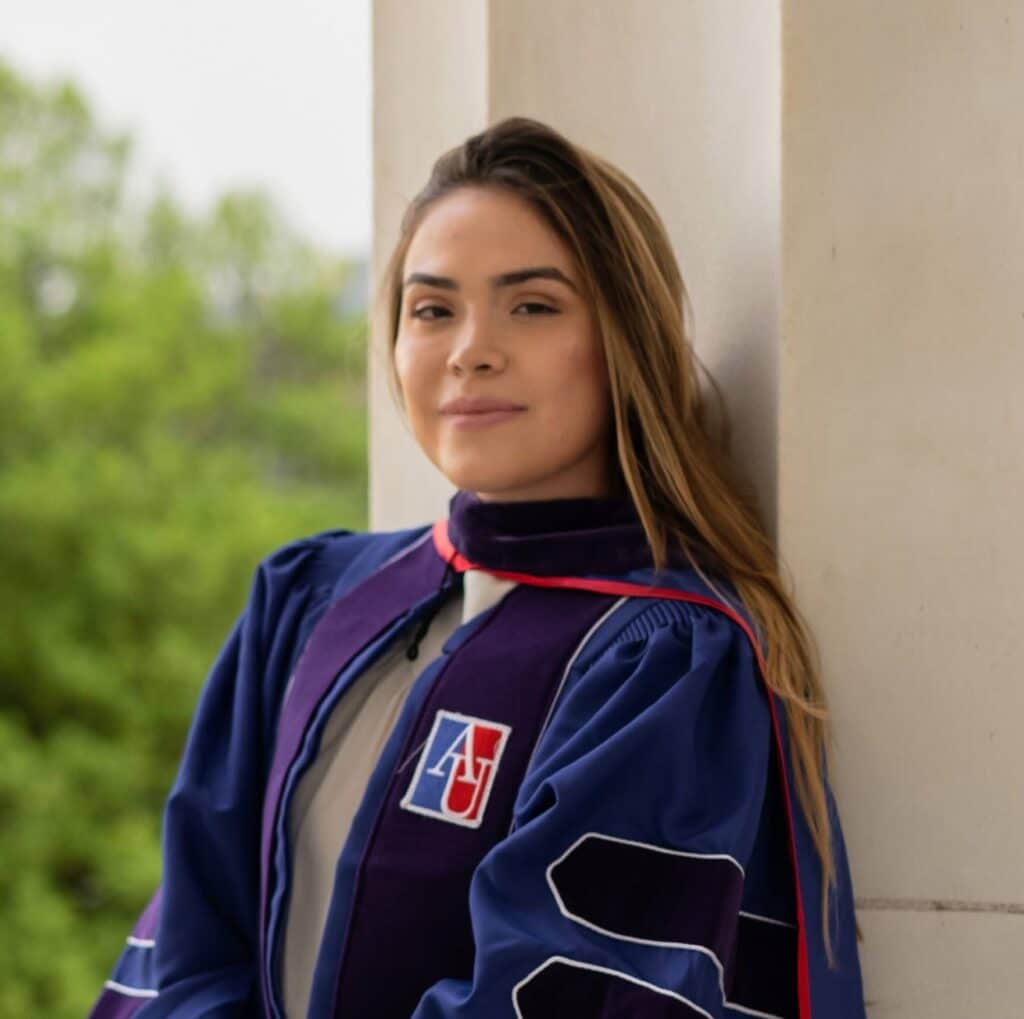Our Immigrant Stories – Juliana Carvajal-Yepes

When GYH Attorney Juliana Carvajal Yepes moved from Medellín, Colombia to the United States at 18, she thought her future was in Colombian politics. She came to the University of Miami to study Political Science and International Relations, inspired by a family of lawyers and a deep interest in public service. But her path shifted when she found herself helping others navigate one of the most complex systems in America: immigration.
Finding Purpose Through Immigration Law
After college, Juliana was offered an internship at an immigration law firm in Washington, D.C. With no legal training but fluent Spanish, she became a bridge for people struggling to understand a system that is difficult for even native English speakers to understand.
“I saw the need to connect people who spoke different languages to such a complex system,” she recalls. “It was about helping them be understood.”
That experience changed her life. It showed her how law could directly empower individuals and families to build new lives in the U.S. and inspired her to pursue her law degree at the American University, where she earned both a J.D. and a Master’s in International Affairs.
From Humanitarian Work to Business Immigration
Juliana began her career in immigration law by assisting clients with their asylum cases and family-based adjustment applications. While she continues to support that work, she soon discovered another calling: helping entrepreneurs bring their businesses — and their cultures — to the United States.
“My passion is bringing Colombian and Latin American businesses to the U.S.,” she says. “It’s about spreading culture and diversity through entrepreneurship.”
Drawing from her Colombian roots and her parents’ experience as corporate attorneys, Juliana found that business immigration offered a powerful way to merge her international background and desire to promote cultural exchange.
El Cielo Restaurant: A Story of Culture, Investment, and Impact
One of Juliana’s favorite examples is El Cielo, a Michelin-starred restaurant founded in Medellín by Colombian chef Juan Manuel Barrientos. El Cielo has 3 locations in the U.S., one in Miami, in Washington, D.C., and just recently, opened its New York location. This business was marketed as a direct EB-5 project that created U.S. jobs and introduced Colombian haute cuisine to new audiences.
“El Cielo’s story shows how immigration fosters economic growth and cultural diversity,” Juliana explains. “These business owners aren’t just investing in the U.S. economy — they’re enriching our communities by bringing a piece of our culture into the U.S. El Cielo merges high-end cuisine with typical Colombian food flavors. When you go there, it is like tasting a piece of back home.”

Whether it’s through the EB-5 investment or E-2 visa, business immigration helps bring global talent and innovation to American soil. It allows investors, entrepreneurs, and skilled professionals to contribute to local economies while sharing their cultural heritage.
“When a restaurant or business opens here, it’s not just a transaction,” Juliana says. “It’s a story — of family, of tradition, of resilience. It’s what makes the U.S. so dynamic and inclusive.”
Advice for Immigrant Entrepreneurs
Juliana’s advice to business owners exploring the idea of expanding into the United States? Start with clarity.
Think about your long-term goal and resources available,” she advises. “The E-2 might be a good choice if you want to move to the U.S. to run your business with a moderate investment; it is flexible, renewable, but its temporary and only available to nationals of treaty countries. In contrast, the EB-5 is a path to obtaining a green card. It requires a larger investment and proof of job creation. Some investors start with an E-2 and later transition to EB-5 once the business grows and they are ready to make permanent commitment to residing in the United States.”
For existing entrepreneurs in the U.S., she has observed a rise in I-9 enforcement and employer audits and wants to remind business owners that pro-active compliance reviews can significantly reduce exposure to penalties later. Conducting internal I-9 audits, maintaining clear documentation, and understanding verification timelines are crucial steps to protect the business as it grows.
A Personal and Professional Mission
Today, at Grossman Young & Hammond, Juliana combines her passion for immigration law with her commitment to empowering the Latin American community. Whether she’s advising a Latin American business owner or a startup founder, her work reflects a broader truth: that every migration story enriches the fabric of the U.S.
“Immigration is not just about crossing borders,” Juliana says. “It’s about bringing pieces of who we are — our ideas, our culture, our traditions — and helping build stronger teams, thriving businesses, and lasting opportunities.”


